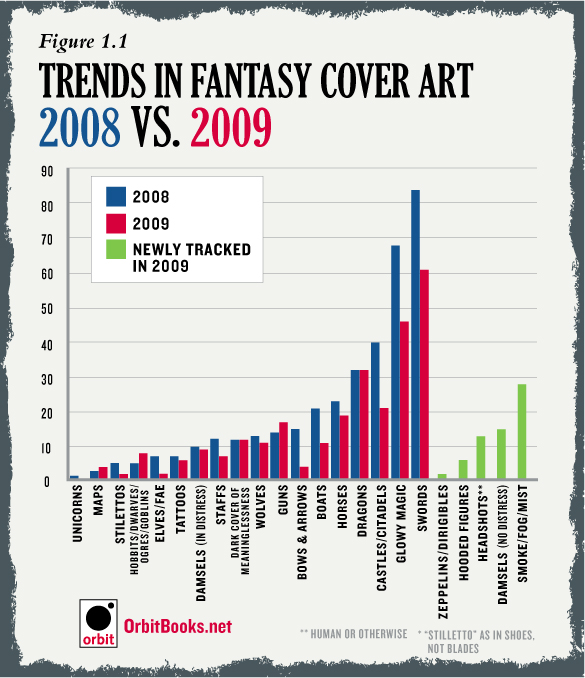 Tasha Robinson has a great article on the AVClub discussing how our perception of an artist and what they have said or done may color our view of their work.
Tasha Robinson has a great article on the AVClub discussing how our perception of an artist and what they have said or done may color our view of their work.
It’s hard to know exactly where knowing the context of a work—knowing about its creator’s history and goals—fades into bias, and an inability to see the work for itself. It’s hard to come to any piece of art without bringing our personal baggage with us. Ultimately, we all have to decide for ourselves whether a given film, show, book, or whatever is meaningful and worthy, and we do that with all the knowledge at our disposal, often more subconsciously than consciously.
But I still think that while we can’t help how we interpret something subconsciously, we can help whether we let an artist’s words or actions completely distract us from our own direct, personal reactions. And in the end, letting those things get in the way is unfair to ourselves, and to our own emotions. And it’s unfair to the art itself, and whatever it may move us to feel or think. Regardless of its intent, regardless of its creator’s behavior, regardless of what anyone else who experiences it says, something speaks to you or it doesn’t, all on its own.
It's a thought provoking piece and worth your time to read in full.
The main thrust of her topic is how what an artist says outside of their art can influence our perception of the art, though she also touches on an artist's actions (e.g. Mel Gibson). I've found that many books and movies I enjoyed as a youngster I now have a different understanding of or appreciation of whether or not I have learned more about its creator. One book, though, took on a much different tone for me after learning more about its author and reading it through more mature eyes.
I'm referring to
Ender's Game by Orson Scott Card. I read this book when I was eleven or twelve and fell in love with it. How could an intelligent, outcast kid not love a book about an intelligent, outcast kid who is tasked with saving humanity? I read it more than once and it became one of my favorites. I strongly recommended it to many people.
Then I grew up. I found out that Card has a
strong dislike for Muslims. He
doesn't like gay people. He wrote a book about
evil liberals overthrowing the American government and the courageous conservatives that must restore things to their natural order. In short, I found him to have a rather despicable world view.
But, that wasn't going to change my love for
Ender's Game. How could it? None of that stuff was in the book that I could recall. So, a couple of years ago, I decided to read it to my daughters. I couldn't wait to share one of my favorite books with them.
It was different this time, though. I still enjoyed it and my daughters certainly did, but I couldn't help but seeing his political beliefs coming through and frankly I found it appalling at times. This
essay does an excellent job taking apart many of the problems with the book, but I want to focus on the one thing that really shined through reading it again. If you have not read the book (and I do encourage you to because despite its issues, it is a very engaging story) stop here because spoilers ensue.
As Ender becomes more and more isolated by his trainers and is put through more and more torture and more students die at Ender's hands, it becomes clear that the ends justify the means for the protagonists of the book. The climax of this is Ender's genocide of an entire race of aliens that humans had been at war with. Topping it off, in the denouement, while Ender is vilified for becoming the Xenocide, he is portrayed in a sympathetic light. He did just what he had to in order to save humanity. He also didn't know what he was doing because he thought he was still just training.
In the essay I linked to above, an interview with Card is mentioned in which he states, "I don’t really think it’s true that ‘the road to hell is paved with good intentions.' Good people trying to do good usually find a way to muddle through. What worries me is when you have bad people trying to do good. They’re not good at it, they don’t have any instinct for it, and they’re willing to do a lot of damage along the way." This is a very scary road to go down. If a person has good intentions, can they really do no wrong? And, who judges whether or not a person's intentions are good? One person's good can be another person's bad. I see Card reading
Watchmen and unequivocally applauding Ozymandias's actions at the end whereas Alan Moore makes the reader very uncomfortable if he or she finds themselves thinking that what Ozymandias did might be justifiable.
I think there are definitely lines that should not be crossed, that the ends most certainly do not justify the means. Reading
Ender's Game when I was young, I did not see Card's beliefs shining through. But as I mentioned earlier, reading it through more seasoned eyes and after having read some of the vile crap that he spews, I have a more troubled outlook toward the book and frankly am appalled at many of the things Card stands for. I do think that art should stand on its own, that its meaning or interpretation is between the connoisseur and the art. However now that I know what I know about Card and now that I have grown up and learned so much more, I can't put that away and look at it the same way I did when I was twelve. I suppose a part of me longs for the naivete of my youth. A part of me wants to simply enjoy the story as a simple tale of a boy far more talented and intelligent than all those around him who must overcome adversity to save the human race.
It's a great story, but I'm saddened that it's not the same story anymore.
UPDATE: Changed the first sentence because by the time I got around to finishing this post, it was not
today that Tasha's article was posted.
 A woman goes off on
A woman goes off on 
 I finally got around to watching
I finally got around to watching 
 Nicholas Negroponte, founder of
Nicholas Negroponte, founder of  Not the year 2001,
Not the year 2001,  I recently watched
I recently watched  1. Before President Truman issued his order to integrate black people into our military,
1. Before President Truman issued his order to integrate black people into our military, 


 In addition to talking to my doc about
In addition to talking to my doc about  Several years ago before I started getting sick I made a conscious decision to try to start eating healthier. This included drastically reducing the amount of pop I drank. I drank a lot, mostly Pepsi (or as a I like to call it "nectar of the gods"), probably about a six-pack a day on average. As much as I loved it, it actually wasn't that hard for me to cut back. In fact I probably had one can a month if that.
Several years ago before I started getting sick I made a conscious decision to try to start eating healthier. This included drastically reducing the amount of pop I drank. I drank a lot, mostly Pepsi (or as a I like to call it "nectar of the gods"), probably about a six-pack a day on average. As much as I loved it, it actually wasn't that hard for me to cut back. In fact I probably had one can a month if that. 
 Facebook (500 million+ users) is
Facebook (500 million+ users) is  This is something actually
This is something actually 


 Some hackers demonstrate how easy it was for them to
Some hackers demonstrate how easy it was for them to 

 There's has been some interesting back and forth on Andrew Sullivan's blog recently about education and poor (primarily African American) communities. Some of his readers have come out strongly against the notion that teachers are to blame for under-performing students, claiming that
There's has been some interesting back and forth on Andrew Sullivan's blog recently about education and poor (primarily African American) communities. Some of his readers have come out strongly against the notion that teachers are to blame for under-performing students, claiming that 

 Radley Balko has written a lot about the trouble citizens encounter when they attempt to tape on-duty law enforcement. Today he posted an article in which he interviewed three law enforcement officials to get their take. Unsurprisingly they all
Radley Balko has written a lot about the trouble citizens encounter when they attempt to tape on-duty law enforcement. Today he posted an article in which he interviewed three law enforcement officials to get their take. Unsurprisingly they all 

 Arcade Fire's latest album, The Suburbs, is out now and you can
Arcade Fire's latest album, The Suburbs, is out now and you can 



 Tasha Robinson has a great article on the AVClub discussing how
Tasha Robinson has a great article on the AVClub discussing how 


